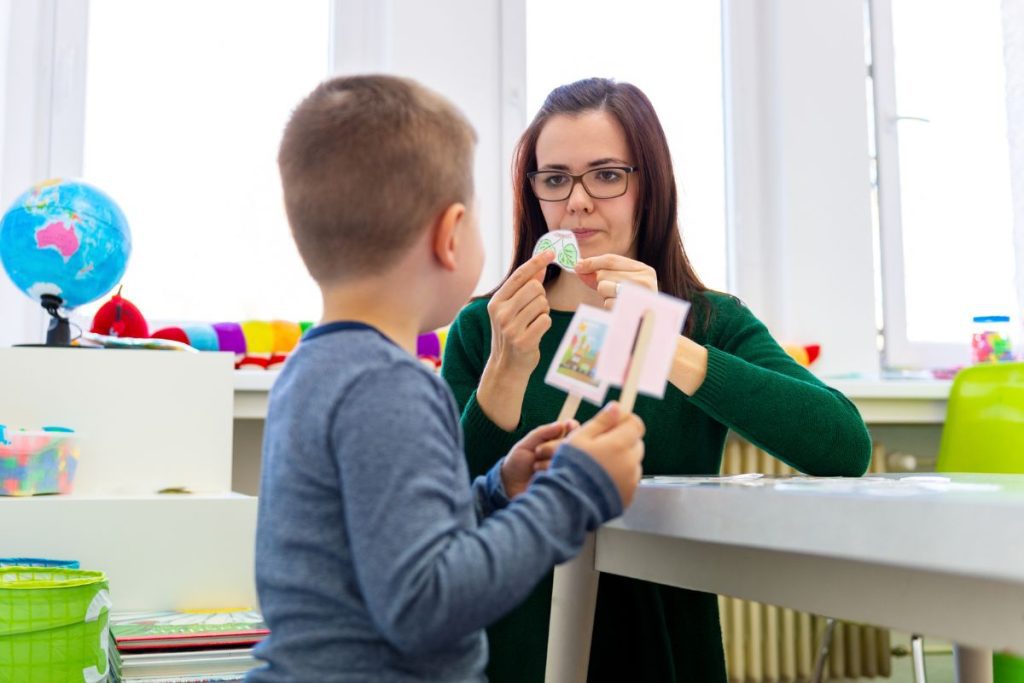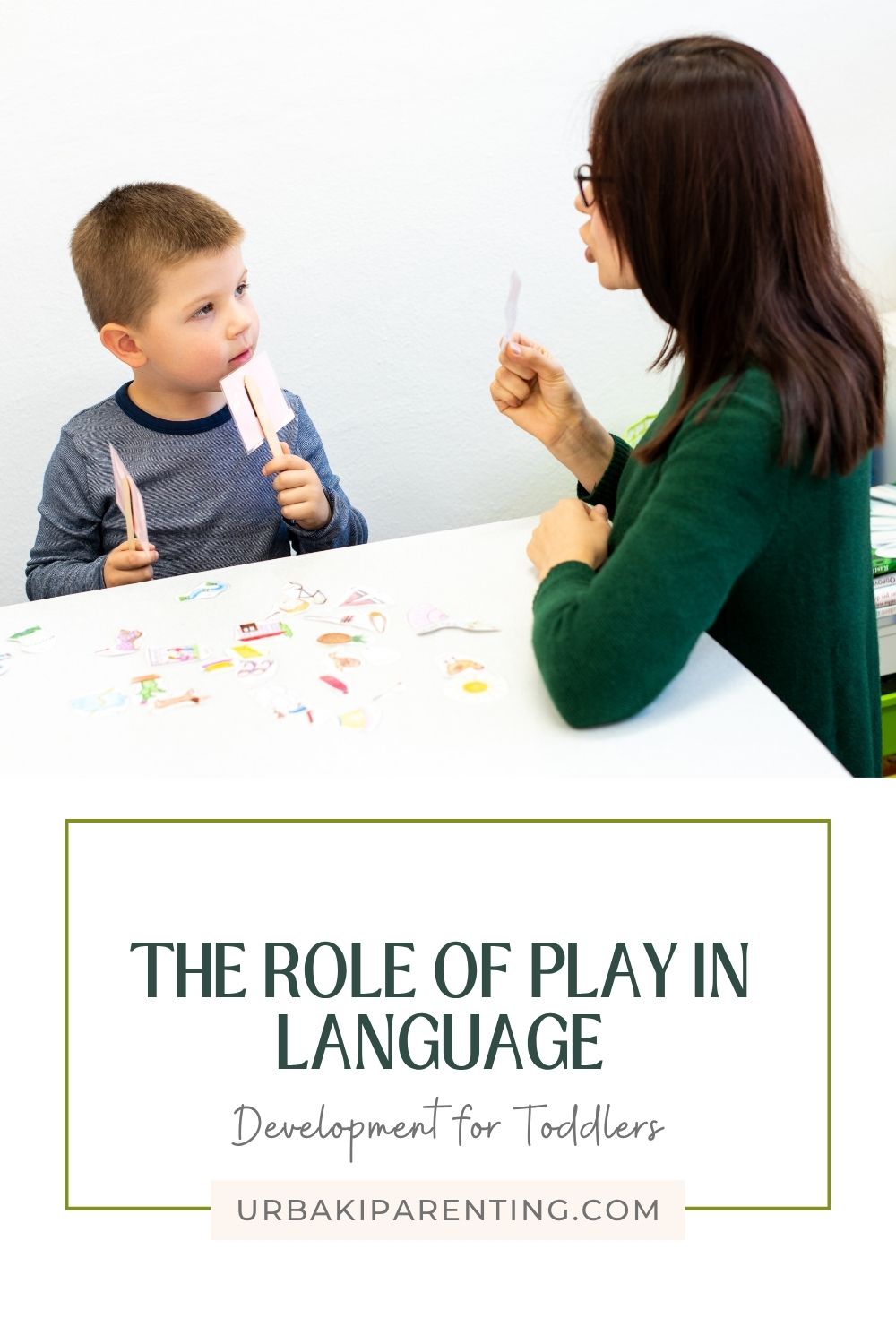- Urbaki Parenting
- Toddlers
- The Role of Play in Language Development for Toddlers
The Role of Play in Language Development for Toddlers

As parents and caregivers, we often focus on structured learning and academic milestones. However, an essential aspect of a toddler's development that often goes unnoticed is play.
Play is not just about fun and entertainment; it plays a critical role in language development. In this article, we'll explore how various forms of play can support toddlers in acquiring language skills and offer practical tips to encourage language growth through play.
Why Play is Crucial for Language Development
Toddlers are at a stage where they are rapidly absorbing information, and their brains are primed for learning. Play is one of the most effective tools for supporting this natural learning process. Through play, toddlers learn how to express themselves, understand others, and expand their vocabulary in an engaging way.
Play Encourages Communication
When toddlers play, they often engage in imaginative play or pretend play, which allows them to experiment with different ways of communicating. For example, when playing with dolls or action figures, they may mimic the speech patterns or behaviors they've observed from adults or peers.
This kind of play encourages toddlers to practice conversational skills such as turn-taking, listening, and speaking in full sentences. It also helps them understand the importance of context in communication.
 Play Enhances Vocabulary Acquisition
Play Enhances Vocabulary Acquisition
One of the most noticeable impacts of play on language development is its ability to increase vocabulary. Whether toddlers are building with blocks, playing dress-up, or reading picture books, they are exposed to new words.
Engaging with toys and activities that use various themes, like food, animals, or everyday objects, helps toddlers learn and associate new words with their environment.
Additionally, interactive play with others provides toddlers the opportunity to hear and use words in real-world situations. This interaction is vital in helping them understand word meanings and sentence structure.
Play Promotes Social Skills and Listening
Through group play or playing with peers, toddlers practice important social interactions. They learn how to ask questions, make requests, and respond to others' words and actions.
These interactions are a vital part of language development because they teach toddlers to listen attentively and respond appropriately. As they engage in back-and-forth conversations, they gradually gain confidence in their ability to communicate.
Types of Play That Support Language Development
Different types of play help toddlers develop various aspects of language. Here are some types of play that are particularly beneficial:
1. Imaginative Play
Imaginative play, also known as pretend or role-playing, is when toddlers pretend to be someone else or use objects as stand-ins for other things. This could involve pretending to cook, act out a favorite story, or imitate adult behaviors.
This type of play helps toddlers learn to use language creatively and practice using new words and phrases in different contexts.
Examples: Pretending to be a doctor, teacher, or parent, or playing "house" with a doll or stuffed animal.
 2. Interactive Play
2. Interactive Play
Interactive play involves direct engagement with others, including games that require communication, turn-taking, or collaboration. This play helps toddlers understand the nuances of conversation and develop important social language skills.
Examples: Playing simple board games, singing songs with hand motions, or engaging in games like "Simon Says."
3. Reading and Storytelling
Reading to toddlers and telling stories helps them understand the structure of language. As you read, toddlers hear a variety of words and sentences, which can expand their vocabulary. Storytelling also encourages listening skills and helps toddlers connect words with ideas, emotions, and experiences.
Examples: Reading picture books, making up stories, or asking toddlers to describe a picture.
4. Physical Play
Physical play, such as dancing, jumping, or playing with large toys, can also contribute to language development. As toddlers engage in physical activities, they learn to follow instructions and may also learn new action verbs like "jump," "run," or "climb."
Examples: Playing catch, dancing to music, or following instructions in games like "Hide and Seek."
5. Music and Rhyming Games
Music and rhyming games are great for language development because they help toddlers understand rhythm, sound patterns, and intonation. Singing songs with repetitive phrases and rhymes can make learning new words fun and easy to remember.
Examples: Singing nursery rhymes, playing rhythm games, or creating simple songs with your toddler.
 Encouraging Language Development Through Play
Encouraging Language Development Through Play
As a parent or caregiver, you can use play to boost your toddler's language skills. Here are some simple ways to encourage language development:
Create a Language-Rich Environment
Surround your toddler with plenty of opportunities to hear and use language. Label objects in your home, point out items during daily routines, and encourage your toddler to talk about what they're doing. The more exposure they get to new words and phrases, the faster their language skills will grow.
Ask Open-Ended Questions
Encourage your toddler to use their language skills by asking open-ended questions that prompt them to think and respond in more than a single word.
For example, instead of asking, "Did you have fun today?" try asking, "What was your favorite part of the day?" This gives toddlers the chance to express themselves and expand their vocabulary.
Play Together
While toddlers love to explore on their own, they also thrive when adults participate in their play. Join in on their pretend games, ask questions, and provide feedback. By actively participating, you show them how to use language in creative and meaningful ways.
Encourage Storytelling
Encourage your toddler to make up their own stories or recount events from their day. This will help them practice sentence structure, recall events, and build their narrative skills. You can also make up stories together, giving them the chance to contribute ideas and words.
 The Long-Term Benefits of Play in Language Development
The Long-Term Benefits of Play in Language Development
The benefits of play go beyond toddlerhood. By fostering language development through play, you are setting the foundation for strong communication skills that will benefit your child throughout their life.
Early language development is linked to later academic success, better social relationships, and the ability to express thoughts and emotions clearly.
Enhanced Reading Skills
When toddlers engage in reading and storytelling during play, they are building the skills necessary for reading comprehension. Understanding sentence structure, vocabulary, and story elements early on helps them transition to more formal reading and writing skills.
Boosted Confidence
As toddlers become more adept at expressing themselves through language, they develop self-confidence in their communication abilities. This confidence extends beyond language skills and impacts other areas of development, such as problem-solving and social interactions.
Better Emotional Expression
Play provides toddlers with an outlet for expressing their emotions in a safe and creative way. As they engage in imaginative play, they experiment with different emotional scenarios, which helps them learn how to communicate their feelings and understand others.
 Supporting Language Growth Through Play: Final Thoughts
Supporting Language Growth Through Play: Final Thoughts
While toddlers may not yet have fully developed verbal skills, play provides a rich environment for them to explore, learn, and grow.
Through imaginative, interactive, and physical play, toddlers are able to expand their vocabulary, practice conversation, and develop the foundational skills needed for effective communication.
By creating a supportive and language-rich environment, engaging in meaningful play activities, and fostering open-ended conversations, you can significantly enhance your toddler's language development.
Play is not just fun—it's an essential tool for learning and growth. So, the next time you're playing with your toddler, remember that you’re helping them build the language skills that will serve them throughout their life.


 Play Enhances Vocabulary Acquisition
Play Enhances Vocabulary Acquisition 2. Interactive Play
2. Interactive Play Encouraging Language Development Through Play
Encouraging Language Development Through Play The Long-Term Benefits of Play in Language Development
The Long-Term Benefits of Play in Language Development Supporting Language Growth Through Play: Final Thoughts
Supporting Language Growth Through Play: Final Thoughts
You may also like